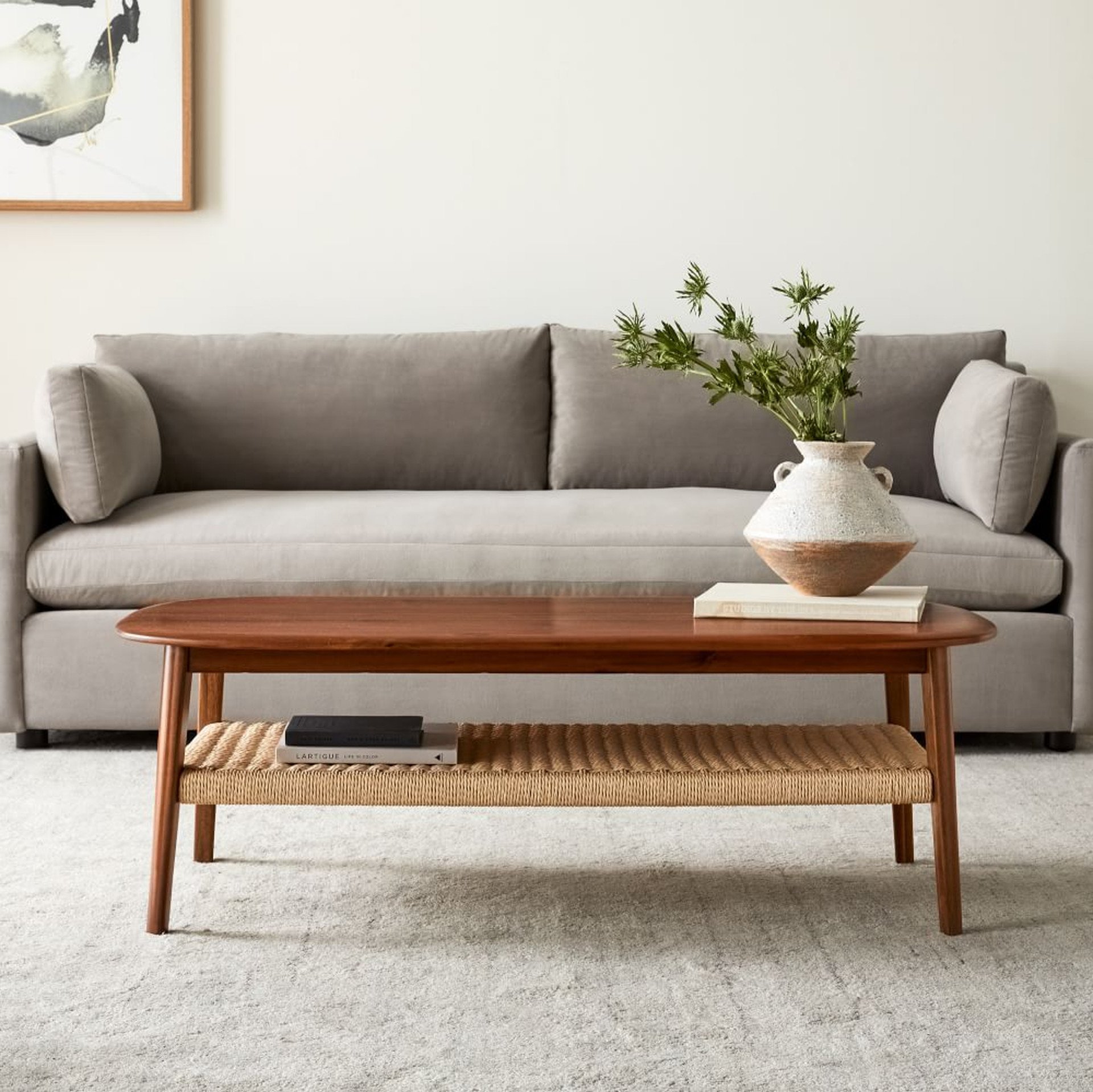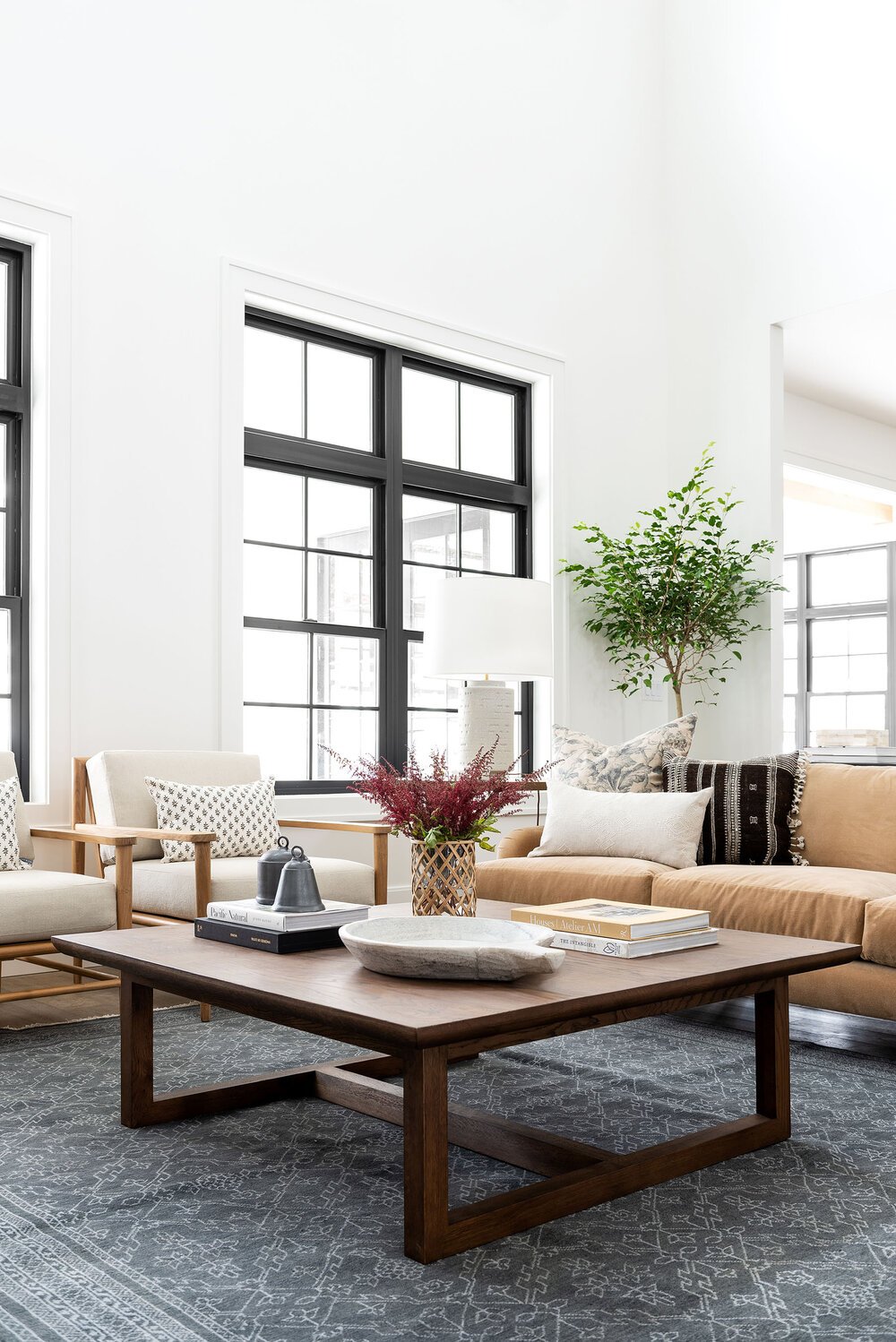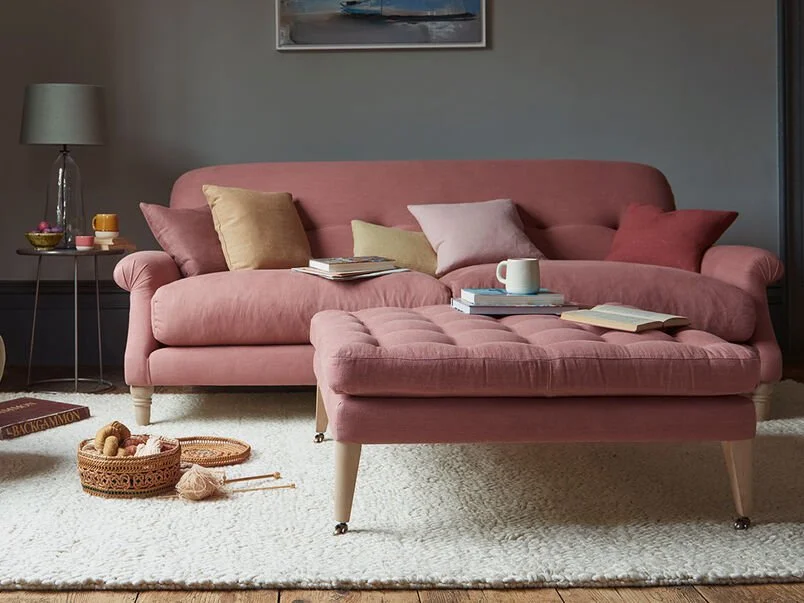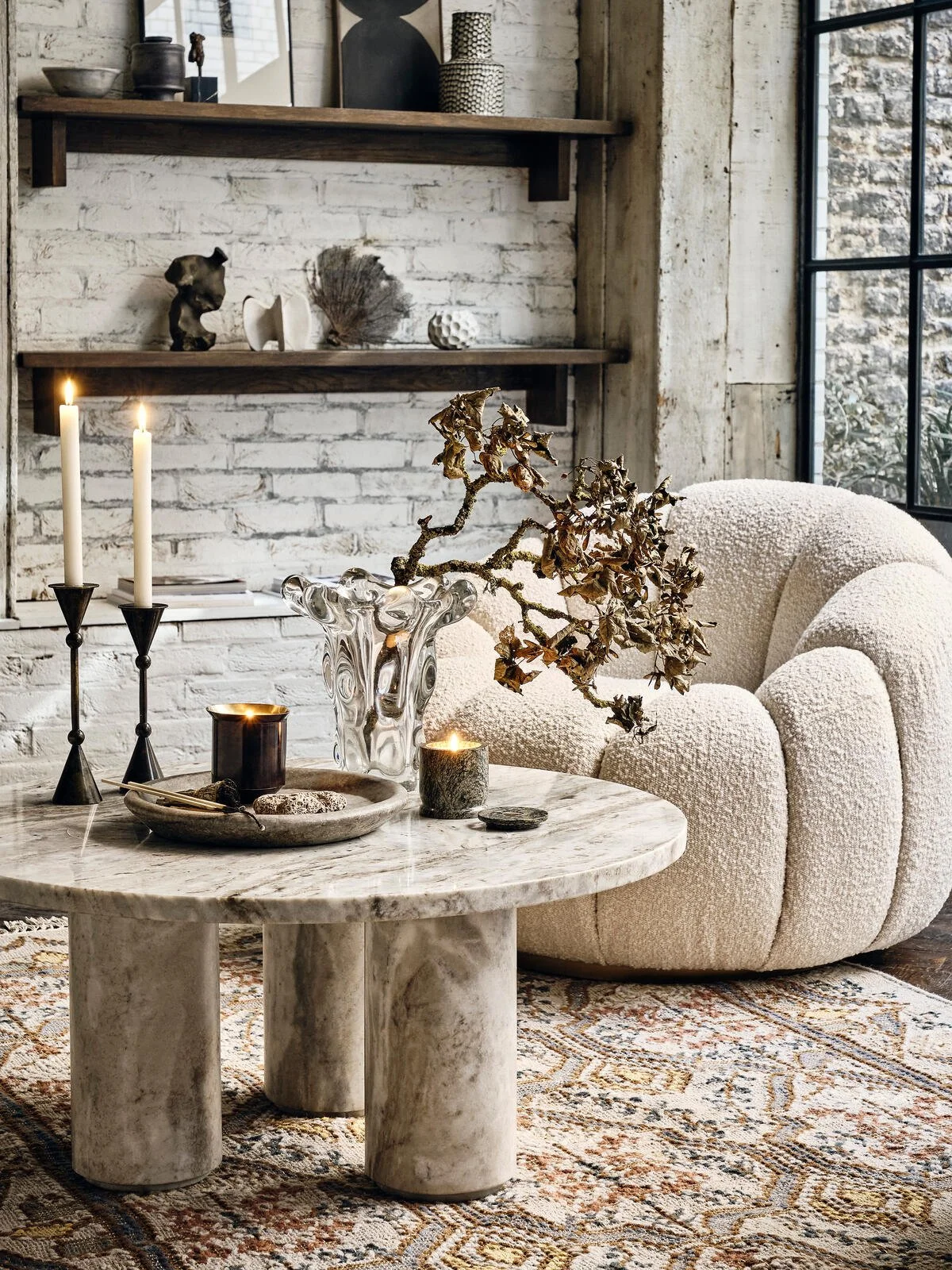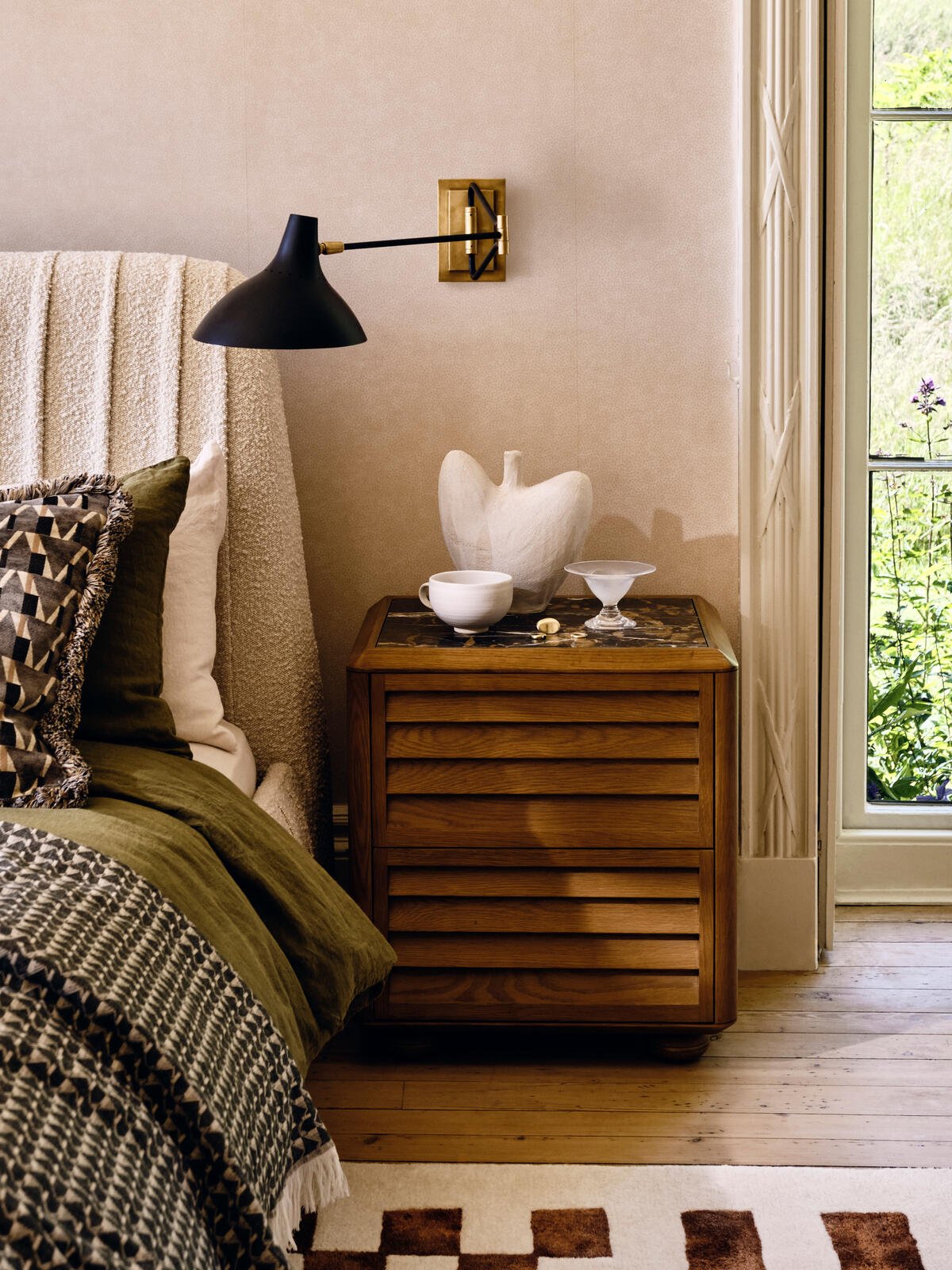Choosing the right coffee table
I’d argue that a coffee table is the second most important piece of furniture in your living room, after the sofa. It gives a room character, can serve as a focal point, as well as having practical purpose. Choosing the right one can make a big difference to the end result of a design.
Here are some pointers which will help narrow down the perfect coffee table for your space.
Size
I’d say that getting the size and scale right is one of the most important things. Too small and it’ll be impractical and will look like it’s floating on its own in the middle of the room. Too large and you won’t be able to move around it. You want at least 35cm between the coffee table and any chairs.
As a rule of thumb, try to find a coffee table which is around 2/3 to 3/4 the width of your sofa, and it should be around the same height as the seat of your sofa, or a few centimetres below.
Perfectly proportioned coffee table and sofa - Chadwick coffee table from West Elm
Shape
Look at the space between your furniture and it should help you figure out what shape of coffee table would work the best. There are generally 2 shapes to choose from - square/circle, or rectangle/oval.
Narrow spaces, where you might have just one sofa, or a sofa and an armchair to the side, generally lend themselves better to oval or rectangle coffee tables, which will fill the space proportionally.
Image from Ideal Home, Image credit: Future PLC/Malcolm Menzies
If you have a large space with a group of furniture, like a corner sofa, 2 sofas facing each other, or multiple armchairs around a sofa, then a square or circle coffee table is most likely to fill the area better.
In the example below, the square coffee table has better proportions in the space.
Square coffee table surrounded by a sofa and armchairs, Studio Mcgee
Material & style
Your coffee table needs to fit in with the design of the room - so take a look at the other furniture that will be around it; colours, wood, metals and fabrics, and try to go for a similar style.
Buttoned Toastie coffee table, from Loaf
Fabric coffee tables will need a tray or additional flat surface to stabilise anything you put on them, but they double up as great foot-stools for those who like to sit on the sofa with their feet up. If you have a young family, you might want a stain resistant fabric or a removable cover for washing.
Glass and acrylic are good options when you have less space - as they’re transparent they won’t take up visually as much space or draw too much attention to themselves. Watch out for dark glass as it’ll show every speck of dust or scratch.
Acrylic coffee table, Apartment Therapy
Coffee tables made from wood (or wood veneer) are stylish, solid and a classic option - especially if you go down the mid-century route.
The classic G-Plan style isn’t going anywhere, and the beauty of mid-century wooden furniture is that it fits in with most design styles. Even Ikea has it’s own version.
G-Plan inspired Listerby coffee table, from Ikea
Other stylish, but perhaps less family-friendly options are metal or stone/marble. I’d save this style for if you have a larger space and no young children, as no one wants to be banging their shins on the metal edge of a coffee table.
Marble coffee table from Soho Home
Functionality
And finally - a note on functionality. If you’re in a small space, or you have a lack of storage, then a coffee-table can be a great multi-functional piece of furniture.
Oak coffee table with storage, from Tikamoon
Nesting coffee tables can be pulled out to act as side tables when needed. Comfy fabric coffee tables can double up as seating space for when you have guests round, or Loaf even has a coffee table which can be pulled out into a spare bed.
Coffee table which can double up into spare seating - image from Williams Sonoma
If you’d like my help with your next project, check out my services to see how we can work together. If you’ve enjoyed this blog, don’t forget to subscribe below to receive my new post in your inbox every Sunday.



